Featured
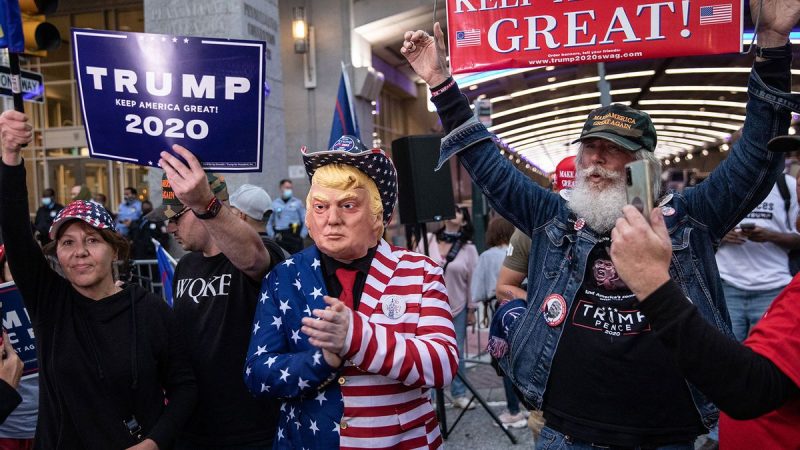 Trump’s Big Lie is the new Lost Cause — and it may poison the country for decades. By Lucian K. Truscott IV / Salon
Trump’s Big Lie is the new Lost Cause — and it may poison the country for decades. By Lucian K. Truscott IV / Salon
Perhaps the most important way the South promoted its Lost Cause after the Civil War was through electoral and legislative means. The rebellion of Southern states against the Reconstruction laws and the 14th and 15th amendments is instructive. Major figures of the Confederacy took prominent roles in the Democratic Party. The Confederate raider and first Grand Wizard of the KKK, Nathan Bedford Forrest, and other Confederate veterans attended the Democratic convention of 1868 in New York where one of Forrest’s friends, Frank Blair Jr., was nominated as the party’s candidate for vice president on a ticket with a former governor of New York. Their campaign slogan was “Our Ticket, Our Motto, This Is a White Man’s Country; Let White Men Rule.” Speeches against emancipation of the slaves given by Blair were said to contribute to Ulysses S. Grant’s comfortable electoral victory. Read more
Related: Tyranny Expert Sounds The Alarm On 2024 Election: It’s Happening. By Lee Moran / HuffPost
Related: No issue is more important than voting rights. By Colbert I. King / Wash Post
Related: Biden highlights voting rights during Martin Luther King ceremony. Rebecca Morin / USA Today
Political / Social
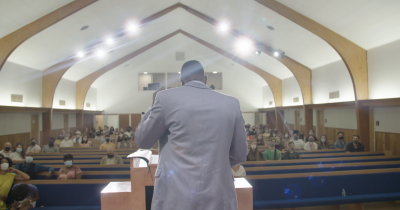 White evangelicals dealing with racial issues and faith. By Justin Sherman / CBS News
White evangelicals dealing with racial issues and faith. By Justin Sherman / CBS News
Edmondson said that Christians who don’t acknowledge America’s structural racism are propping up bigotry with their silence. “I think people want to affirm the sort of inherent goodness of America and the American project. They want to say America is a good country,” Edmondson said. “But in their attempt to try to affirm the goodness of America in every respect they often are overlooking, downplaying, and perhaps even reinforcing the sufferings of a lot of people.” Read more
Related: The Schism in the Evangelical Church. By Peter Wehner / The Atlantic
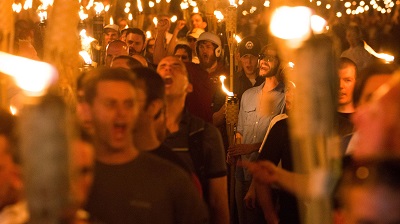 Charlottesville ‘Unite the Right’ trial set to begin four years after rally. By Ben Kesslen / NBC News
Charlottesville ‘Unite the Right’ trial set to begin four years after rally. By Ben Kesslen / NBC News
Before hundreds of neo-Nazis descended on Charlottesville, Virginia, for the “Unite the Right” rally in 2017, they gathered in person and on Discord, meticulously planning the deadly event, which has since been seared into American history. On Discord, attendees coordinated rides, planned chants, discussed Virginia laws and talked about what gear to take. Leaders and planners of the rally answered questions, laid out its philosophy and told participants to be ready to die for the cause. Read more
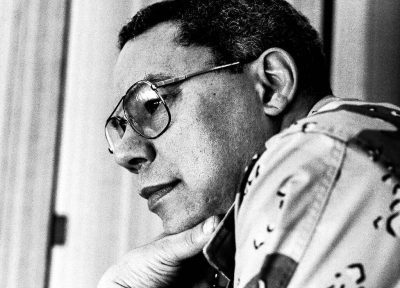 The Paradox of Colin Powell. By Theodore R. Johnson / NYT
The Paradox of Colin Powell. By Theodore R. Johnson / NYT
Mr. Powell passed away this week after a life of firsts — the first Black national security adviser, the first Black chairman of the Joint Chiefs of Staff and the first Black secretary of state. But the mark he leaves for posterity is far more than a collection of superlative achievements. It’s in the disaggregation of these things — considering his race and his profession in distinct ways — where we can learn more about America, both what it is and what it’s becoming. Read more
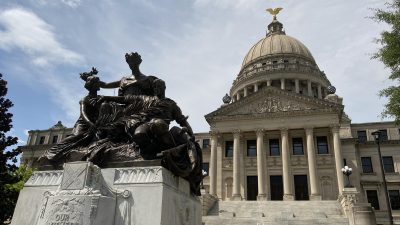 One Mississippi Capital, Two Worlds. By Stephan Bisaha / NPR
One Mississippi Capital, Two Worlds. By Stephan Bisaha / NPR
This is a tale of two Jackson, Mississippis. There’s Jackson, the state capital, run historically by white conservatives. Then there’s Jackson, the 82 percent Black city, run by a mayor wanting to make it “the most radical city on the planet.” February’s winter storm and water crisis provided just the latest high profile example of the two Jackson’s clashing. State and local governments have made a pastime out of pointing fingers at each other for the city’s woes, from crime to potholes to urban blight. Mississippi leaders say Jackson is just one city and can’t hog resources to fix problems found elsewhere in the state too. Jackson leaders say they need more state support and that Mississippi can’t thrive while its largest city suffers. Read more
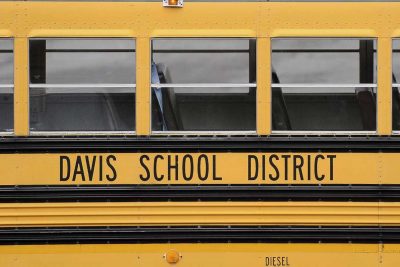 Utah school district allowed ‘serious and widespread racial harassment,’ Justice Dept. finds. By Laura Meckler / Wash Post
Utah school district allowed ‘serious and widespread racial harassment,’ Justice Dept. finds. By Laura Meckler / Wash Post
A federal investigation into a Utah school district found “serious and widespread racial harassment” of Black and Asian American students and a persistent failure by school officials to respond, the Justice Department said Thursday. The investigation concluded that the Davis school district in Farmington, Utah, failed to address pervasive and racist harassment of students of color, disciplined Black students more harshly than White students for comparable behavior, and denied Black students’ request to form student groups while allowing other students to do so. Read more
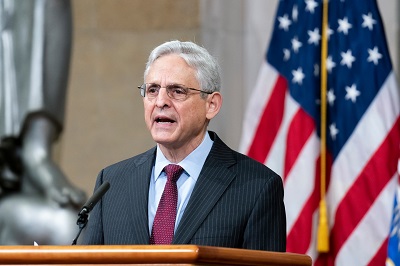 Justice Dept. launches new effort to target discriminatory lending among banks. By David Nakamura / Wash Post
Justice Dept. launches new effort to target discriminatory lending among banks. By David Nakamura / Wash Post
Attorney General Merrick Garland on Friday launched a new Justice Department initiative aimed at combating discriminatory lending policies among banks, saying the practice harms minority communities and contributes to the racial wealth gap. In an address to staff, Garland cited the history of banks denying loans to Black borrowers during the Great Depression — a tactic known as redlining — and warned that such practices remain widespread more than 90 years later. He said the department would, in conjunction with other federal agencies, mount the federal government’s “most aggressive and coordinated effort” to root out and punish those who violate federal laws that prohibit such practices. Read more
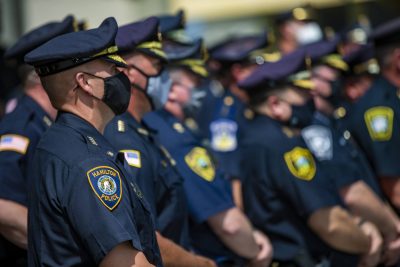 A ballot initiative on reforming the police after George Floyd’s death is tearing Minneapolis apart. By Holly Bailey / Wash Post
A ballot initiative on reforming the police after George Floyd’s death is tearing Minneapolis apart. By Holly Bailey / Wash Post
City Question Two, as it is known, would amend the Minneapolis charter to allow the police department to be replaced by a Department of Public Safety overseen by both the mayor and city council. The Department would take a “comprehensive public health approach” to safety, including the dispatch of mental health workers to certain calls and more investment in violence prevention efforts. Read more
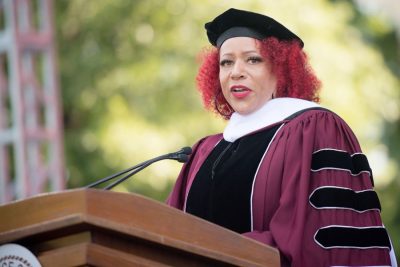 Boarding School Scrubs Nikole Hannah-Jones Speech Over Backlash Fears. By Nina Golgowski / HuffPost
Boarding School Scrubs Nikole Hannah-Jones Speech Over Backlash Fears. By Nina Golgowski / HuffPost
Nikole Hannah-Jones, the Pulitzer Prize-winning journalist and creator of the 1619 Project, said she was disinvited from speaking at a private boarding school in Massachusetts during Black History Month next February over concerns about how people outside the school might react. Hannah-Jones tweeted Monday that the elite Middlesex School in Concord had canceled her speech, and shared a statement saying she had been disinvited over concerns of “noise” associated with her being a speaker. Read more
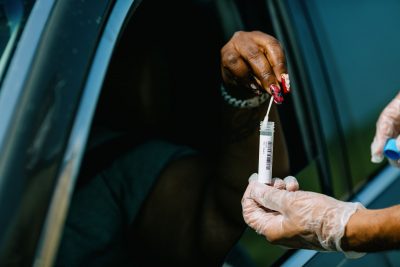 Racial disparities may be emerging in breakthrough infections. We must track them better. By Oni Blackstock, Alexandra Skinner and Julia Raifman / Wash Post
Racial disparities may be emerging in breakthrough infections. We must track them better. By Oni Blackstock, Alexandra Skinner and Julia Raifman / Wash Post
Historical / Cultural
 America Was Forged by the Marginalized. By Jamelle Bouie / NYT Podcast
America Was Forged by the Marginalized. By Jamelle Bouie / NYT Podcast
My guest today is Martha Jones. Jones is a legal and cultural historian at the Johns Hopkins University. She focuses on the ways that Black Americans have shaped the culture and practice of U.S. democracy. I was first introduced to Jones’s work through her book “Birthright Citizens: A History of Race and Rights in Antebellum America.” Listen here
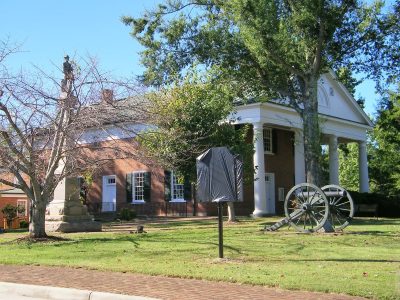 He was killed on the courthouse steps. Now, a Virginia county honors its first Black elected leader. By Gillian Brockell / Wash Post
He was killed on the courthouse steps. Now, a Virginia county honors its first Black elected leader. By Gillian Brockell / Wash Post
Holmes was born enslaved around 1838. Liston’s research indicates he was likely enslaved by the Marshalls, a wealthy White family — possibly by Judge Hunter Holmes Marshall, who owned the Roxabel plantation, or his cousin, John H. Marshall. It is unknown how exactly Holmes gained his freedom, but by the late 1860s, records show he was working as a shoemaker and had married and started a family. On May 3, four local White men were heard bragging that they had shot a Black man and threatening to kill Holmes. When Holmes found out, he went to the courthouse to get warrants for the men’s arrests. Instead, he encountered the men there. One struck him with the butt of his pistol and then shot him in the chest. At least two more shots rang out from the group of four men. Holmes crawled from the steps and died just inside the courthouse doors. Read more
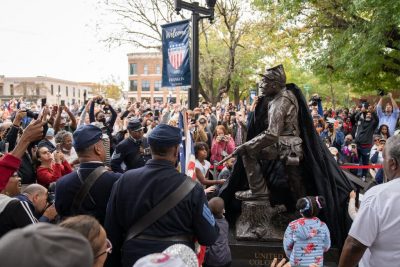 Remove a Confederate Statue? A Tennessee City Did This Instead.
Remove a Confederate Statue? A Tennessee City Did This Instead.
Mr. Sawyers and like-minded residents did not get the statue removed, but they have come up with a provocative response to it: a new bronze statue in Franklin’s public square depicting a life-size soldier from the U.S. Colored Troops, largely Black regiments that were recruited for the U.S. Army during the Civil War. The new monument, which was unveiled Saturday before a crowd of hundreds, and five recently added markers tell the story of the market house where enslaved people were auctioned and the role that local Black men played in fighting for their freedom. Dubbed the Fuller Story, the four-year project led by Mr. Sawyers and three other local residents expanded the narrative of why and how the war was fought. Read more
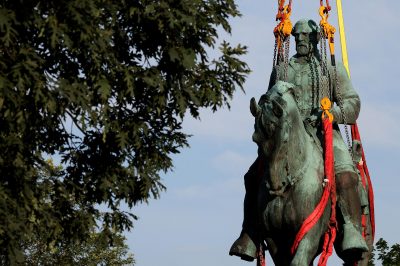 A Black museum asks to melt Charlottesville’s Robert E. Lee statue to create new art. By Becky Sullivan / NPR
A Black museum asks to melt Charlottesville’s Robert E. Lee statue to create new art. By Becky Sullivan / NPR
Four years ago, the Robert E. Lee statue in Charlottesville, Va., was at the heart of a violent white supremacist rally that left a counter protester dead. Now, a museum dedicated to Black culture and history has put forward a new proposal: Melt the statue down and use the bronze to create new works of public art. The Jefferson School African American Heritage Center’s proposal, titled “Swords into Plowshares,” calls for commissioning an artist-in-residence to create the new artworks, which would be gifted to the city of Charlottesville upon completion. Read more
 L.A. groups commemorate 1871 massacre that killed 10% of city’s Chinese community. By Kimmy Yam / NBC News
L.A. groups commemorate 1871 massacre that killed 10% of city’s Chinese community. By Kimmy Yam / NBC News
A century and a half after a violent race riot in Los Angeles’ Chinatown terrorized the city’s Chinese American community, area schools and organizations are calling attention to the 1871 massacre, which they consider a “forgotten history.” In observance of the 150th anniversary Sunday, local groups have been commemorating the race riot, which resulted in the murder of roughly 20 Chinese Americans — among the largest mass lynchings in American history. The organizations hosted a livestream performance and a K-12 teacher training workshop on the riot last week. An estimated 500 white and Latino men and boys participated, after white police officers got involved in a dispute in Chinatown. About 10 percent of the area’s Chinese population were killed that day. Read more
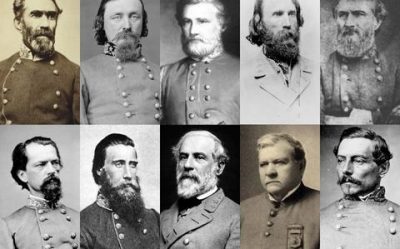 Why did the U.S. name army bases after Civil War enemies? By Nicholas Goldberg / LA Times
Why did the U.S. name army bases after Civil War enemies? By Nicholas Goldberg / LA Times
How did the United States come to have nearly a dozen military installations named not after its heroes but after its enemies — men who led a war against the country and killed tens of thousands of people in defense of the indefensible institution of slavery? The last I checked, the Confederate army lost the Civil War. So isn’t it kind of off-message, to say the least, to name military posts after the rebel officers who fought for the losing side? Yet that’s exactly what the United States did. That’s why today we have Ft. Bragg in North Carolina, named after Braxton Bragg, an irascible Confederate general. There’s also Ft. Hood in Texas, named after Gen. John Bell Hood. And Ft. Polk in Louisiana, named for Gen. Leonidas Polk. Also Fts. Beauregard, Benning, Lee , Pickett, Rucker, A.P. Hill and Gordon, dotted across the American South. Read more
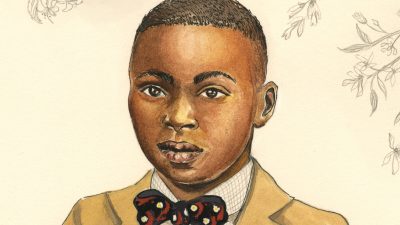 Review: ‘Color,’ by Countee Cullen. / NYT Archives
Review: ‘Color,’ by Countee Cullen. / NYT Archives
In “Color,” Countee Cullen exhibits an unmistakable lyric gift that is out of the ordinary. It would be easy to overpraise him, for it is not often that men of his blood reveal so deep and so modern a sensitivity to the poetic urge, and so his excellence stands out all the more vividly. He still has some distance to go before he reaches any particularly high eminence as a poet, but what he has accomplished in “Color” leads to the suspicion that if he is not spoiled by overadulation during these early years he will produce distinguished and lasting work. Read more
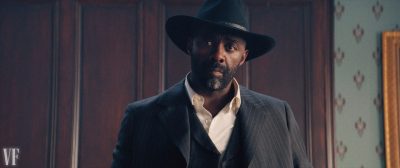 The Harder They Fall’s Idris Elba on Crafting His Scariest Villain Yet. By David Canfield / Vanity Fair
The Harder They Fall’s Idris Elba on Crafting His Scariest Villain Yet. By David Canfield / Vanity Fair
There’s something about Idris Elba’s eyes in The Harder They Fall. The way they tell a story with a flicker, the depth of feeling behind a long stare. How the camera just can’t seem to leave them once it finds them. The star’s first appearance in the film is near-wordless; most of his scenes that follow prove similarly light on dialogue. Yet Elba still lets us in, with a kind of thorough, emphatic silence. “When you look into his eyes, I get the exact same feeling that I get from Henry Fonda’s in Once Upon a Time in the West,” says director Jeymes Samuel. “You know there’s good in there, but he’s about to do something really dangerous. And really deadly.” Read more
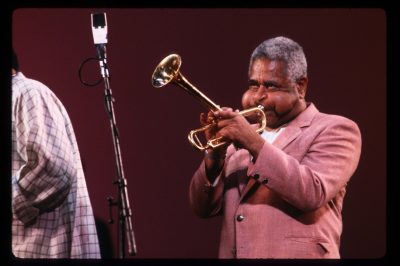 Celebrating Dizzy Gillespie, who put the bop into bebop. By Denise Oliver Velez / Daily Kos
Celebrating Dizzy Gillespie, who put the bop into bebop. By Denise Oliver Velez / Daily Kos
Most people who have had any exposure to jazz will recognize a photo of Dizzy Gillespie with his turned up, “bent” trumpet and puffed cheeks, even if they don’t know a lot about his history or his groundbreaking influence on the genre. For today’s Black Music Sunday, join me in a celebration of Gillespie’s recent birthday (Oct. 21), as we explore his impact on the music which continues to enchant and engage us even after he left to become a jazz ancestor in January 1993. Read more
Sports
 Simone Biles Says She’s ‘Still Scared To Do Gymnastics’ In Emotional Interview. By Josephine Harvey / HuffPost
Simone Biles Says She’s ‘Still Scared To Do Gymnastics’ In Emotional Interview. By Josephine Harvey / HuffPost
“Over the years, after suppressing so many emotions and putting up a front on a global scene, I think really all of that came to light [at the Olympics],” she told host Hoda Kotb. “My body and my mind allowed me to suppress all of that stuff for so many years,” she continued, adding that it all “cracked” under the pressure of the Olympic stage. Biles pulled out of the gymnastic team final in Tokyo and later withdrew from five individual finals. She said she’d been suffering from mid-air disorientation, known in gymnastic circles as the “twisties,” triggered by her mental health issues. Listen here
 The message behind the messages that Lewis Hamilton wants you to know. By Nate Saunders / ESPN
The message behind the messages that Lewis Hamilton wants you to know. By Nate Saunders / ESPN
Lewis Hamilton is having a remarkable impact in Formula One. He’s shattering records on the track – and setting new benchmarks once thought impossible – but also becoming a loud voice for social justice away from the sport. Hamilton is a seven-time world champion pushing for an eighth title this year. He is also the only Black driver in the history of F1’s world championship, which started in 1950. Hamilton’s desire to be heard on issues important to him has grown and grown in recent years. This was never more evident than at last season’s Tuscan Grand Prix at the Mugello Circuit. Ahead of that race, Hamilton wore a t-shirt with the message “Arrest the Cops Who Killed Breonna Taylor”, with an image of Taylor’s face on the back and the words “Say Her Name”. Read more
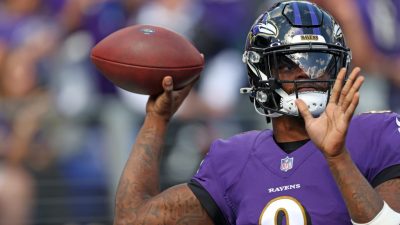 The coded language of ‘figuring out’ Lamar Jackson. By Martenzie Johnson / The Undefeated
The coded language of ‘figuring out’ Lamar Jackson. By Martenzie Johnson / The Undefeated
Before the start of the 2021 NFL season, ESPN’s Jeremy Fowler reported that “a lot of people around the league” believed that, after Lamar Jackson amassed more than 8,000 total yards and 76 touchdowns over the last two seasons, this was the year teams “figure out” the Baltimore Ravens quarterback. On the surface, it’s absurd that league personnel believe that teams can suddenly flip a switch and stop one of the fastest and most agile players the league has ever seen, particularly one who accounted for 43 touchdowns just two seasons ago, 36 coming from the air. But when you take that anonymous comment about Jackson and apply it to how other mobile quarterbacks who look like him have been discussed and critiqued over the years, figuring out Jackson is another instance of Black quarterbacks’ talents, and intelligence, being devalued solely based on the color of their skin. Read more
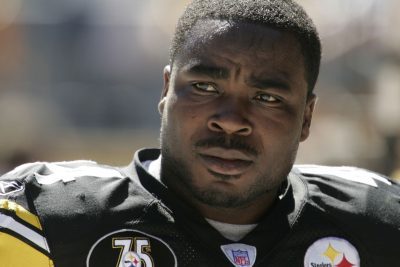 NFL Agrees To End Race-Based Brain Testing In $1 Billion Settlement. By Maryclaire Dale / HuffPost
NFL Agrees To End Race-Based Brain Testing In $1 Billion Settlement. By Maryclaire Dale / HuffPost
The NFL agreed to end race-based adjustments in dementia testing that critics said made it difficult for Black retirees to qualify for awards in the $1 billion settlement of concussion claims, according to a proposed deal filed Wednesday in federal court. The revised testing plan follows public outrage over the use of “race-norming,” a practice that came to light only after two former NFL players filed a civil rights lawsuit over it in 2019. The adjustments, critics say, may have prevented hundreds of Black players suffering from dementia to win awards that average $500,000 or more. Read more
Site information
Visit our home page for more articles, book/podcast and video favorites. And at the top of this page register your email to receive notification of new editions of Race Inquiry Digest. Click here for earlier Digests.
About Race Inquiry and Race Inquiry Digest. The Digest is published on Mondays and Thursdays.
Use the buttons below to share the Digest in an email, or post to your Facebook, Linkedin or Twitter accounts.
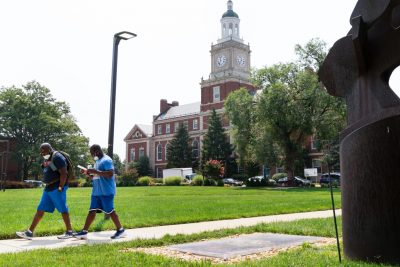 Biden plan pits Hispanic-serving colleges against HBCUs. By Bianca Quilsantan / Politico
Biden plan pits Hispanic-serving colleges against HBCUs. By Bianca Quilsantan / Politico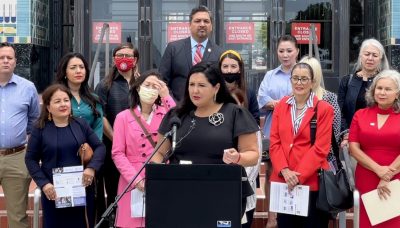 Latinas are still the lowest paid group in the U.S. Experts have tips for combating the inequity. By Ingrid Cruz / The Lilly
Latinas are still the lowest paid group in the U.S. Experts have tips for combating the inequity. By Ingrid Cruz / The Lilly